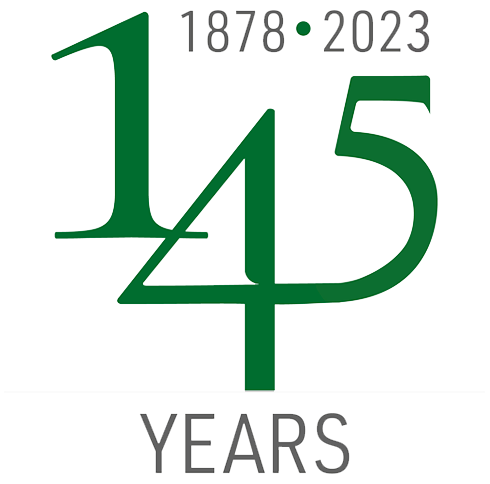PTMG@home: the latest news about pharmaceutical trademarks
Founded in 1970, the PTMG is a wide group of professionals and attorneys with specific skills in the pharmaceutical field. The main aim of the Group is to allow its members to meet on a regular basis to discuss about issues of mutual interest during two annual conferences about the most relevant topics.
This year, due to the unexpected health emergency, the PTMG as well as several other institutions worldwide decided to go online, thus organizing the first virtual event in its history: the PTMG@home. The program offered two live symposia and three available podcasts.
Parallel imports and the new Falsified Medicine Directive (speech by Novartis)
The first very interesting lecture was the speech held by Novartis about the most discussed topic at the moment, namely the impact of the recent Directive 2011/62/EU called “Falsified Medicine Directive” regarding the issue of parallel imports.
What do we mean by parallel imports in this context?
Parallel trade is a legitimate way to exchange goods among member countries of the European Economic Area, which takes place outside of the factories’ distribution network and regards original products. Parallel trade is based on the principle of free movement of goods within the internal market and, in the pharmaceutical sector in particular, it benefits from the products’ price variation among the countries.
Due to the objective differences of both languages and regulations among the countries, parallel importers substantially modify the original packaging with methods like relabelling, repackaging and/or rebranding (when, due to regulatory issues, the producer trademark is not accepted in the market where the products are imported).
Parallel importers usually prefer the solution of repackaging as they find it more convenient.
But when is repackaging allowed?
In the balance between respecting the principle of free trade and the producers’ IP rights, the Court of Justice outlined precise limitations for parallel importers.
The trademark owner cannot oppose to the further commercialization of his/her repackaged pharmaceutical product if:
- it is proved that the repackaging is objectively necessary according to the regulation of the market where the product is imported (for example for regulatory reasons);
- it is proved that the repackaging cannot alter the original condition of the product contained in the first packaging;
- on the new packaging there are clear indications about the author of the repackaging and the name of the producer;
- the presentation of the repackaged product is not detrimental to the trademark reputation and to its owner; therefore, the repackaging shouldn’t be faulty, of bad quality or rough;
- the importer, before selling the repackaged product, has duly informed the trademark owner also providing a sample, if requested.
Both the regulation and the case law regarding parallel imports are now intersecting with the Falsified Medicine Directive and the related EU Regulation 2016/161, which came into force in 2019 in all EU countries.
Although Italy benefits from a waiver of 6 years (until February 2025) to implement such provision, as a matter of fact pharmaceutical companies should take into account the serialization requirements also for producers of medicines in our country exporting them in other EU countries. For this reason, many national companies already updated their production and distribution processes in order to comply to the regulation as soon as it came into force.
What changes with the new Directive?
With the new regulation, the rules for authenticity protection of medicines subject to prescription are changing. The packaging will have to be equipped with the so-called “safety feature”, that is to say a unique identification code included in the barcode, together with an anti-tampering device, in order to guarantee the packaging integrity so that, once it gets opened, it cannot be closed as before.
How is this regulation intersecting the topic of parallel imports?
Some parallel importers claim that the Falsified Medicine Directive allows the repackaging of all products, considering that the anti-tampering device is necessarily damaged by the importer while opening the packaging to insert the leaflet translated into the language of the country where the product is imported.
On the other hand, pharmaceutical companies maintain that a product relabelling with an equivalent anti-tampering device, possibly leaving the producer’s device visible, is functional and complies with the Directive, thus allowing the consumer to fully trace back the single steps the product has gone through. Such transparency would not be possible with a product repackaging.
This relevant interpretation matter – namely, if from now on the repackaging will always be necessary for importers or if it is sufficient that they replace the producer’s seal with another device – reached up to Court of Justice where the case is currently pending.
The decision, which we are very eagerly awaiting, will certainly have a significant impact not only in the context of the continuous fight between producers and importers, but also for consumers and their increasing request for transparency.
Medical Apps and IP implications (speech by CMS)
The speech about Digital Healthcare and IP implications was also very interesting.
The market of health Apps is literally booming and this phenomenon has certainly highlighted some critical aspects in the EU with regards to the qualification and classification of Apps as medical devices.
In October 2019, the Medical Device Coordination Group (MDCG) published a guidance meant to help producers of medical software to establish whether or not their product was included within the scope of EU Regulations 2017/745-746 regarding Medical Devices, thus qualifying itself as a medical device software (MDSW). This guidance also includes the Apps running on mobile phones, clouds or other platforms.
From an IP point of view, Apps are mainly protected by copyright law and the trademarks related to such Apps, if qualified as medical devices, should protect not only class 9 regarding software, but also class 10 including medical devices.
Moreover, trademark registrations designating the item “computer software” in class 9 are subject to bad faith invalidation actions under certain conditions, in light of the recent judgement of the Court of Justice in the case Sky/SkyKick (C-371/18 on 29/01/2020). In order to prevent such objections, it is highly advisable to focus the scope of protection on the software’s exact field.
Gaming in the medical field (speech by Games for Health)
Last but not least, it was fascinating listening to the speech about the use of gamification, which is the transposition of logics of the gaming world to the health sector. This was a surprising presentation for the variety of uses of gaming in the medical field.
We remain available to further analyse these topics, please do not hesitate to contact us should you have any requests.

